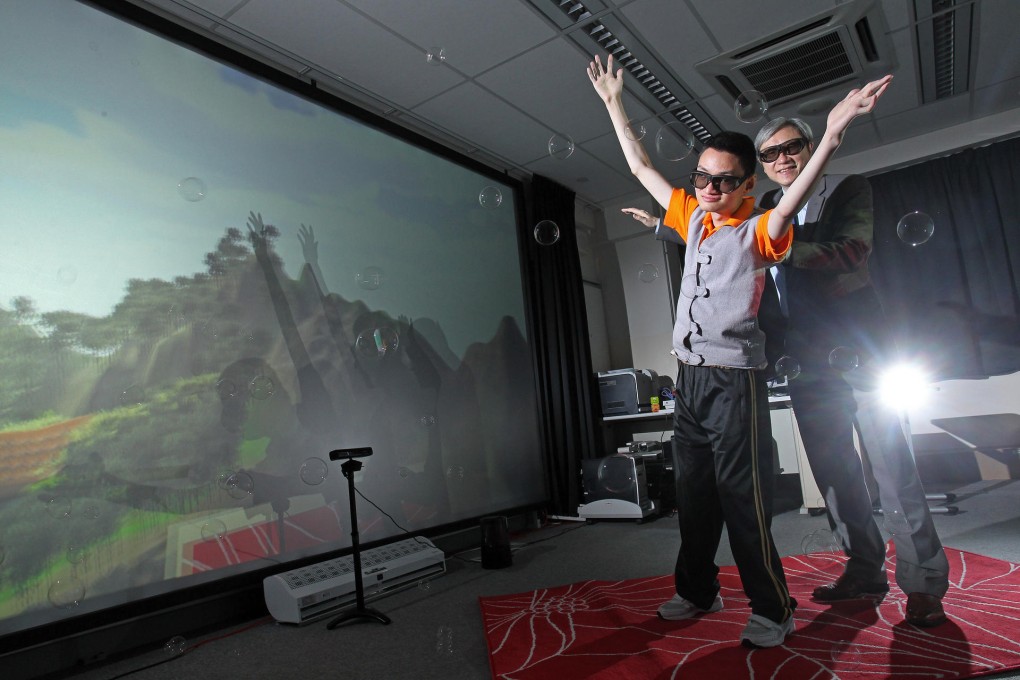3D learning program developed in Hong Kong to help intellectually disabled children
Interactive program developed by City University is proving an effective learning tool

Man Wai-ho may be severely intellectually disabled, but he can steer a flying carpet - at least in 3D virtual reality using a program that recognises body gestures.
The Interactive Sensory Program for Affective Learning (InSPAL) was developed three years ago specifically to help students like Man with severe intellectual disabilities.
It was created by a multidisciplinary team led by Horace Ip Ho-shing, professor of computer science at City University and director of its AIMtech Centre.
In collaboration with the Mental Health Association of Hong Kong - Cornwall School, and supported by the Quality Education Fund, Ip's team has been training students to expand their learning abilities and extend attention spans.
It took a year to develop InSPAL for Cornwall School, followed by 18 months of psycho-educational training sessions for almost 100 severely intellectually disabled students.
In a dark room at the school where 21-year-old Man was once a student, he is wearing 3D glasses and facing a screen as he rides the flying carpet overlooking lush green mountains under a sunny sky. An actual carpet is rolled out for him to stand on. He can steer the carpet to the left by leaning left.